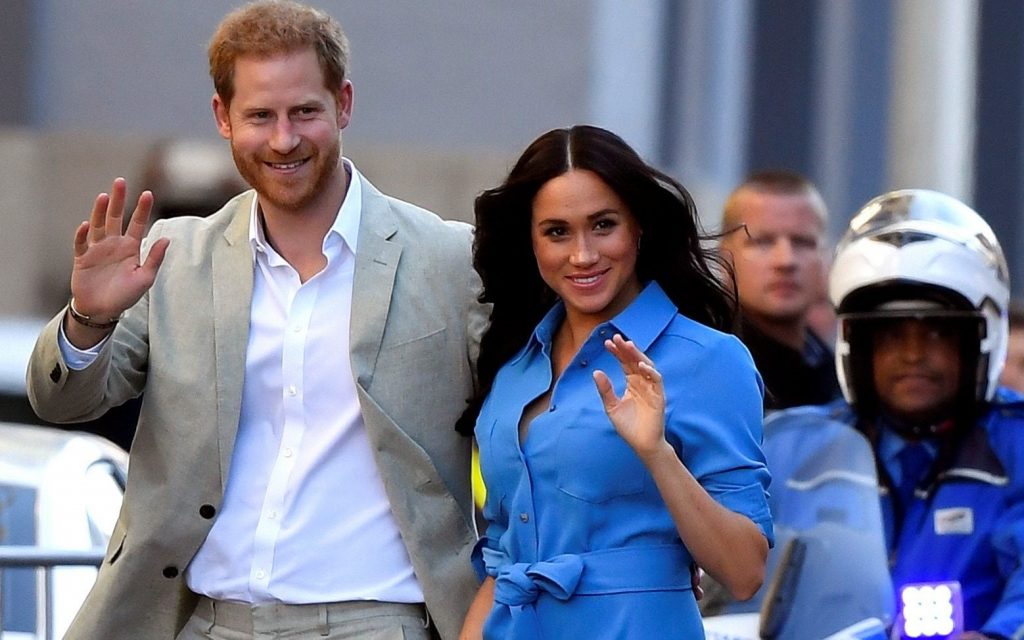By Adele Walton
Last week, the Duke and Duchess of Sussex announced they will be stepping down from their positions as members of the Royal Family and moving to Canada.
This decision came as a shock to many, but for those who have been following the couple for a while, things have materialised as expected as we reach the climax of their ongoing battle with the British press and right-wing public. Ever since the announcement of their engagement in 2017, Meghan has been the target of a relentless hate campaign from the right-wing press.
In October last year, Harry and Meghan were pushed to press charges against Associated Newspapers for the unlawful publishing of private family letters. The treatment of Meghan by the British press has come at the expense of her personal wellbeing and has now left the couple no choice but to leave the UK. It is evident that the media’s ongoing disdain for Meghan is evidently down to her bi-racial identity, and the couple has been driven to pack up and leave to escape the racist intolerance of the right-wing media.

With this decision has come an enormous surge of debate surrounding its justification. Earlier this week, Dr Shola Mos-Shogbamimu featured on a panel on BBC Two where she spoke on the nature of covert racism and how white privilege functions to reproduce systematic racism. She expressed her concern at the fact that ‘people are more outraged about the so-called race card than being outraged by racist behaviour’. Rightfully so, it is a reflection of the nature of intolerance within British society; that speaking out on forms of discrimination is viewed as more of a threat to civil liberties than the existence of racism is.
On Good Morning Britain, Piers Morgan decided to repeatedly shout ‘Where is the racism?!’ at a fellow panellist, who was not allowed to answer him in full with his endless interruptions. When interviewing (or hounding) Afua Hirsch, writer, professor and former barrister, he interrupted her countless times and even blamed her for ‘bringing race into this’. Piers even defended Danny Baker, who compared the three-day-old royal baby Archie to a chimp, saying ‘Danny Baker is not remotely racist’. The dynamic that unfolded during the interview demonstrated perfectly how exactly black people (and very often black women on panel shows) are silenced, blamed and patronised when they attempt to explain their experiences of racism.

An argument frequently played out by Twitter right-wingers, who mobilise at the first sight of a black panellist calling out racism, is that this is simply ‘identity politics gone mad’. Are people feeling entitled to be treated equally and valued as a member of society? What a load of communist woke rubbish! In all seriousness though, the identity politics narrative is as redundant as the myth of the race card. We can see that whenever someone refers to these concepts it is as a line of defence as if calling out racism in British society is a personal attack to their identity and they have to explain away the possibility of there being room for debate. By arguing that discussions around racism are simply identity politics, white people remain the gatekeepers of what constitutes as necessary discussion and undermine the need for conversations that confront racism in Britain whilst invalidating black peoples’ experiences.
More often than not, the ‘race card’ or ‘identity politics’ concept is brought up by a middle-aged, middle class, white male (or occasionally female) – despite probably never having experienced being treated differently due to their skin colour and/or ethnicity. Therefore, their ability to give any valid commentary on the lived experience of people who have is slim to none.
Our identity is inherently tied to how we are treated by others, all the aspects of who we are intersects when others form their perceptions of us and how they decide to treat us. As a heterosexual white woman, I personally cannot comment on the discrimination that black homosexual men face for example. But what I can do is listen, acknowledge and educate myself and others further who may be ignorant to these experiences. I would, however, be able to comment on the sexualisation of women in the workplace or the demonisation of Islam by the West. For when an element of our identity becomes politicised by society and impacts our lived experiences, is when we are able to speak on such forms of oppression.
When someone’s gender means they are paid on average 17% less, or their skin colour means they are 40 times more likely to be stopped and searched or 5 times more likely to die during childbirth, we have to consider that our identities are inseparable from politics and have significant impact on our quality of life. Starting conversations will only provoke change if people are willing to be receptive and acknowledge other peoples’ experiences, without becoming defensive or feeling that there is a personal motivation to attack or undermine an element of their being. This is why identity politics doesn’t exist as such – rather identity and politics do not exist in separate realms but are constantly interacting and shaping our lives.
Adele Walton is currently studying international development at the University of Sussex. Her interests lie in globalisation, socioeconomic inequality and modern culture.


